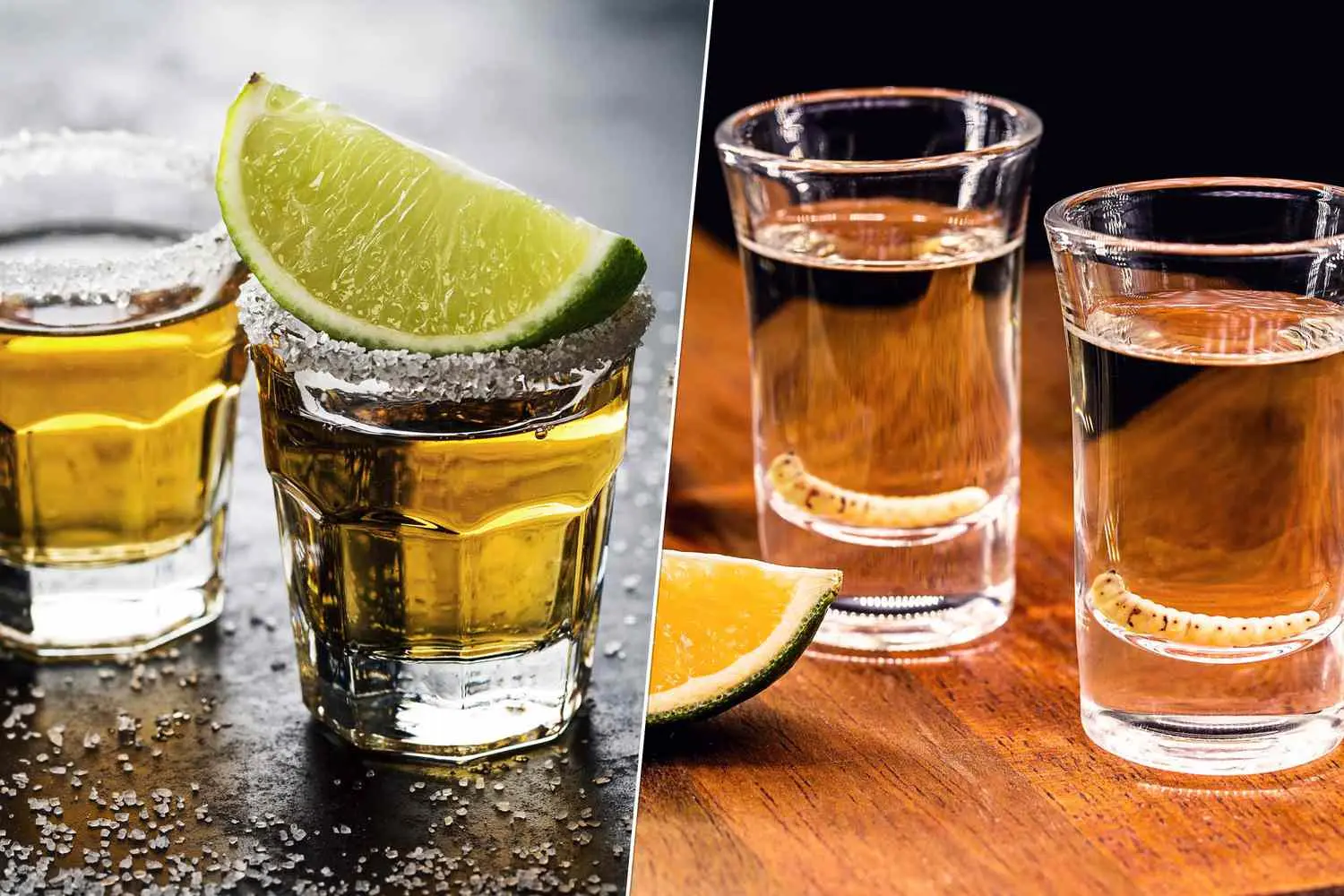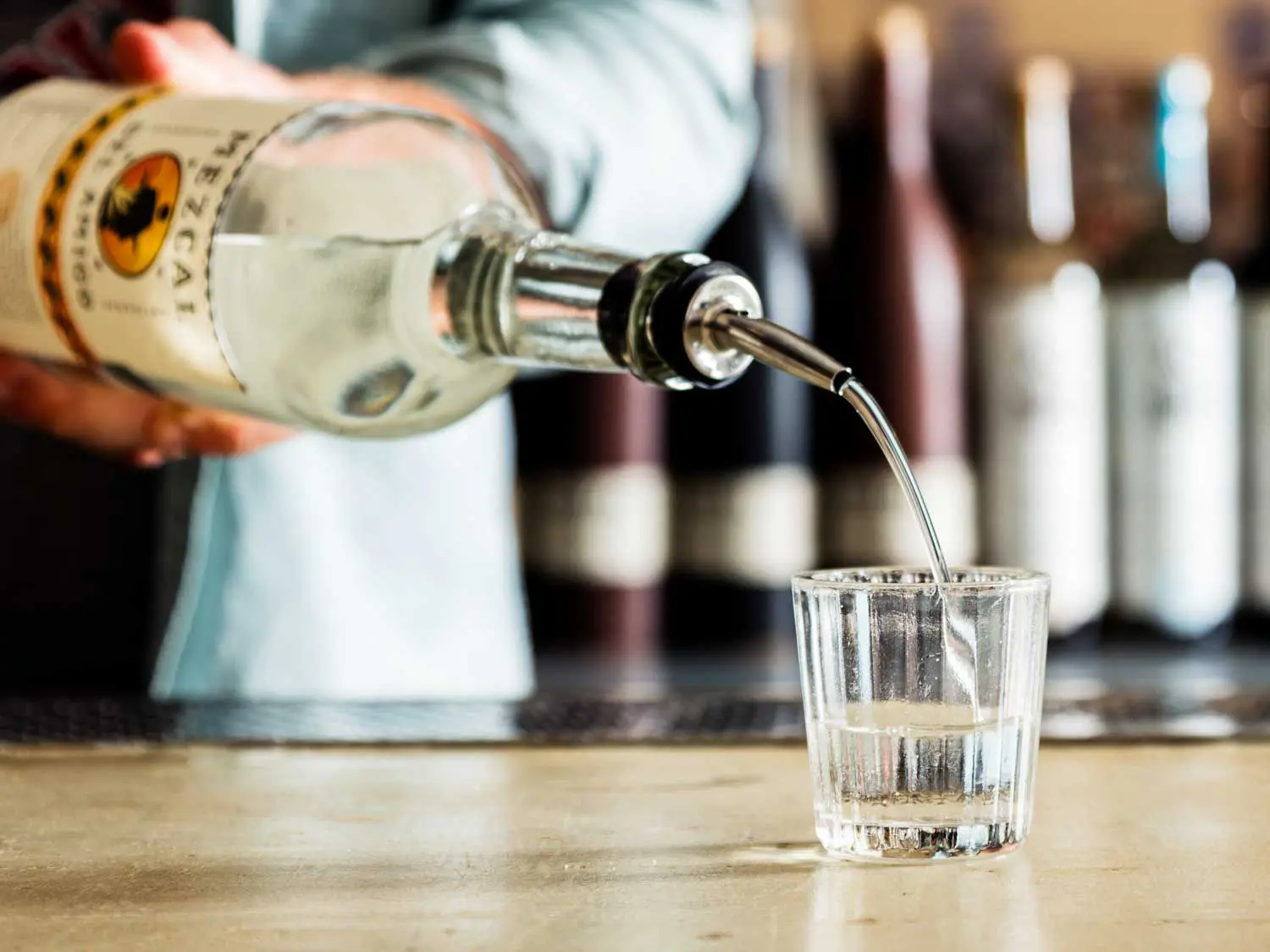A staple of Mexican bar culture, mezcal has been gaining ground in the American spirits scene for the past decade or more. Though it's now a staple of many cocktail joints, there's still some confusion. Tequila and mezcal are both agave spirits, right? So what's the difference between tequila and mezcal?
The simplest way to think about it, explains Sydney Block, co-founder of Catedral Mi Padre Mezcal, is that all tequila is mezcal but not all mezcal is tequila. Mezcal is a vast category of spirits made from agave and tequila is a small subset of mezcal, much like bourbon is a kind of whiskey, or Chardonnay is a kind of wine. basically, the way i think about it is that tequila is a kind of mezcal, but there are different kinds that are not, Block explains.
That's because tequila can only be made from one kind of agave plant: Blue Weber Agave. Mezcal, on the other hand, can use any kind of agave plant. they're all the same plant but they have different varieties. mezcal is made from all 40 of them, and it can be made from wild and cultivated, Block says. for tequila, it must be cultivated and it must be blue weber agave.
The Smoky Flavor of Mezcal
To make mezcal, mescaleros take the core of the agave plant — known as the piña — and roast the plant in conical pites in the ground in a similar manner to barbacoa. The cooking method is why mezcals often taste smokier than tequilas. But because the methodology for making mezcal is less constrained than tequila, and because mescaleros can use whatever species of agave they want, there's a great deal of variety in mezcal. because of its small batch nature, the variety of flavors that are presented in mezcal are astronomical, Block explains. the different flavors between batches of the same agave species can range pretty drastically, depending on who's making it works.
To make tequila, on the other hand, distillers steam the blue agave piña, usually in a brick oven or autoclave. Tequila's strict constraints mean that the flavor is more consistent, and the methodology also lends itself more easily to industrial production, which explains why tequila was a more common import on American bar shelves than mezcal until relatively recently. Mezcals are by nature individual and changeable — the same brand or farmer might make a bottle that tastes very different from last month or last year's output.
Types of Mezcal and Tequila
In tequila, the process is more standardized and therefore you can expect more stable flavor characteristics, explains Uduimoh Umolu, founder of tequila brand Jon Basil. tequila is from jalisco, and the plants are blue weber agave, which are specific to that region, notes Umolu. they take seven to eight years to grow, to the point where they're ready for distillation. it's the process and the patience to create the tequila that makes it stand out.
After mezcal and tequila are distilled, both can be aged or drunk as they are, as a clear spirit — in tequila that's known as blanco, and in mezcal, that's generally called joven which translates to young. If you age tequila or mezcal in a steel or wooden barrel for two months up to a year, that creates tequila reposado or mezcal reposado, spirits that have a caramel color and pick up notes from the barrel in which they're aging. If you age longer than a year, that's when you get añejo, a category for both tequila and mezcal, although it's much more common in tequila. Anejo tequilas and mezcals have a darker color, closer to a whiskey or rum, and an even stronger flavor profile, depending on the barrel they were aging in.

Mezcal is a type of distilled alcohol made from the agave plant. It is often associated with a smoky flavor due to the traditional production process. Unlike tequila, which is a specific type of mezcal made from Blue Weber Agave, mezcal can be made from various species of agave plants. This diversity in plant varieties and production methods results in a wide range of flavors and characteristics in mezcal.
To make mezcal, the core of the agave plant, known as the piña, is roasted in conical pits in the ground. This cooking method gives mezcal its distinct smoky taste. The roasted piñas are then crushed and fermented before being distilled. The artisanal nature of mezcal production, with its emphasis on traditional methods and small-batch production, contributes to the unique flavors and qualities of each mezcal.
Mezcal is often enjoyed neat or used as a base spirit in cocktails. Its smoky profile adds depth and complexity to mixed drinks. In recent years, mezcal has gained popularity in the United States and other countries, with a growing appreciation for its rich heritage and diverse range of flavors.
Frequently Asked Questions
What is the difference between mezcal and tequila?
The main difference between mezcal and tequila lies in the type of agave used and the production process. Mezcal can be made from various species of agave, while tequila must be made from Blue Weber Agave. Additionally, mezcal is known for its smoky flavor due to the traditional roasting process, whereas tequila has a more consistent flavor profile.
How is mezcal made?
Mezcal is made by roasting the piñas, or cores, of agave plants in conical pits in the ground. The roasted piñas are then crushed and fermented before being distilled. This traditional production method gives mezcal its characteristic smoky flavor.
Can mezcal be aged?
Yes, mezcal can be aged in barrels, similar to tequila. Aging mezcal in barrels imparts additional flavors and colors to the spirit. The aging process can range from a few months to several years, resulting in different categories such as reposado and añejo mezcal.

Is mezcal stronger than tequila?
The alcohol content of mezcal and tequila can vary, but they are generally similar in strength. Both spirits are typically bottled at around 40% alcohol by volume (ABV). However, it's important to note that individual brands and expressions may have different alcohol percentages.
In Summary
Mezcal is a unique and diverse spirit made from various species of agave. Its smoky flavor sets it apart from tequila, which is a specific type of mezcal made from Blue Weber Agave. The traditional production methods and artisanal nature of mezcal contribute to its wide range of flavors and characteristics. Whether enjoyed neat or in cocktails, mezcal offers a rich and complex drinking experience.
If you want to know other articles similar to Why is mezcal smoky but not tequila? you can visit the Spirits category.


Related Articles